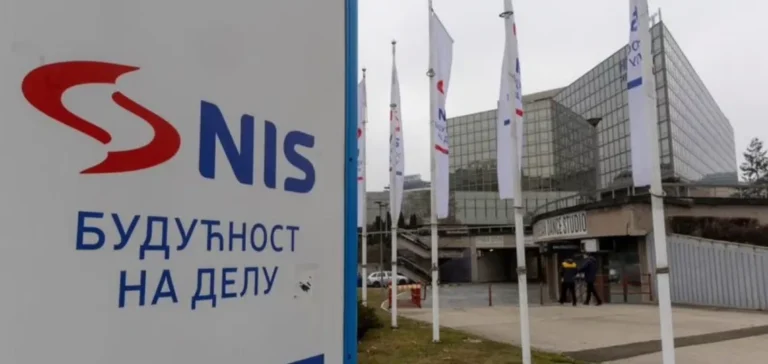Serbian oil and gas company Naftna Industrija Srbije (NIS), majority-owned by Russian entities, has been granted a sixth extension of US economic sanctions, according to an announcement by the Serbian Ministry of Energy reported on August 27 by Connaissance des Énergies with AFP. The 30-day extension, valid until September 26, was approved by the United States Department of the Treasury as part of broader measures targeting companies linked to the Russian energy sector.
NIS has been under sanction since January, following restrictions imposed by the administration of President Joe Biden shortly before the transition of power to Donald Trump. The group operates Serbia’s only refinery, located in Pancevo, which supplies nearly 80% of the national market. The company employs approximately 13,500 people and manages a network of over 400 service stations across the Balkans.
Gazprom holds a controlling stake
NIS’s capital is divided between Gazprom Neft (around 45%), parent company Gazprom (11%), the Serbian government (close to 30%), and minority shareholders. This ownership structure makes NIS a central yet vulnerable player in a context of ongoing Western sanctions targeting Russian energy assets.
In 2024, NIS reported revenue of approximately €3.3bn ($3.67bn) but closed the fiscal year with a net loss of €153mn ($170mn). Despite financial pressures, Serbian Minister of Energy Dubravka Djedovic Handanovic stated that the successive extensions have enabled the country to preserve its energy stability.
A network of regional interests
The extension may also reflect geopolitical factors in the region. According to local media, Hungary, where Serbia stores part of its natural gas reserves, supported the Serbian request. Croatia also plays a strategic role, as NIS imports crude oil via a pipeline operated by Croatian state-owned company Janaf, of which it is the main client.
With Serbia still heavily dependent on Russian gas supplies, negotiations are underway to renew a gas supply agreement with the Russian Federation. Dusan Bajatovic, director of Serbian state gas company Srbijagas, recently announced that a new three-year contract is expected to be signed in September, allowing imports of up to 2.5bn cubic metres of Russian gas annually.
Belgrade pushes for broader settlement
The Serbian government confirmed it will continue active dialogue with both US and Russian authorities to have NIS removed from the sanctions list. According to Minister Djedovic Handanovic, Belgrade hopes that a broader agreement between Washington and Moscow on sanctions will lead to a lasting resolution for the company’s status.






















